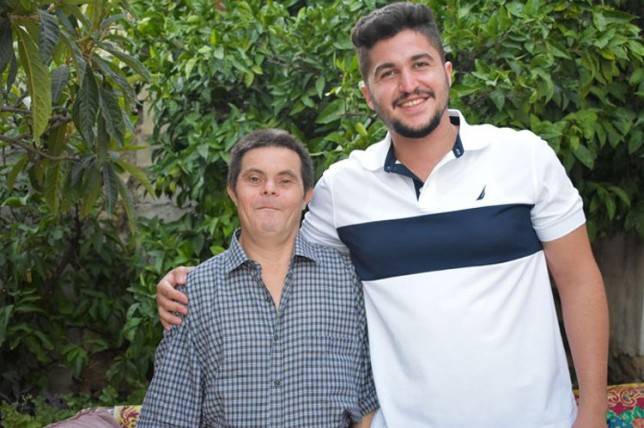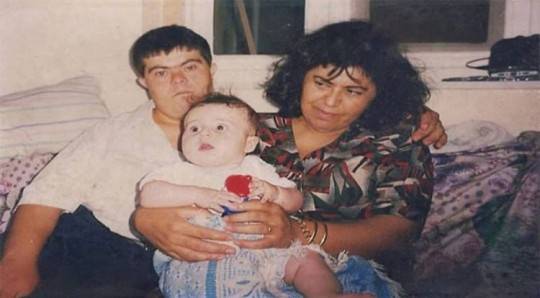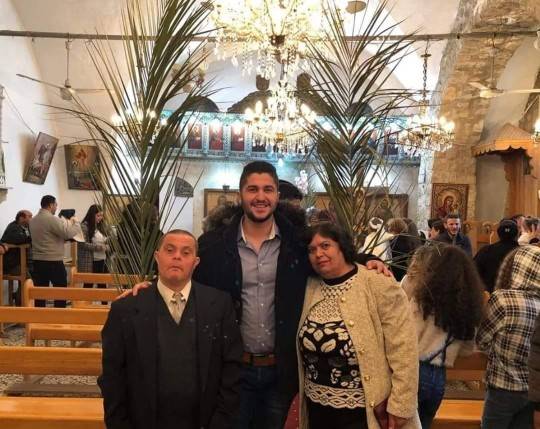

Syrian student Sader Issa, who is training to be a dentist, was raised by a dad who has Down's syndrome.
His father, Jad, has the genetic condition where a person has three copies of chromosome 21, instead of the usual two copies, leading to learning disabilities and delayed development.
The condition hasn't meant that Sadar's childhood was lacking in love, support and guidance in any way.
Dad Jad showered his only son with as much attention as he could and made sure he focused on his studies.
The wheat factory worker has also become an important pillar of the community because of his selflessness.
He is well known for his kindness and for expressing love and admiration, expecting nothing in return.
Sader said he is 'proud' to have such a dad, loved by so many.

Speaking to the Syrian Society for Social Development, Sader said: 'I'm proud of my father. Throughout my life, he has been the greatest support for me when I needed it.'
The pride goes both ways as Jad is also extremely delighted with his son's choice of profession.
Sader added: 'It's possible to see when his eyes are filled with joy and satisfaction as if to express: "yes, I have Down's syndrome, but I raised this man and did everything in my power to make him become a doctor and help others".
'
In most cases, Down's syndrome is not inherited as it's caused by a one-off genetic change in the sperm or egg.
According to the Down's syndrome society, if one parent has it, there is a 35% to 50% chance that the child may inherit the condition.
Most men with the condition can't have children while some women may be able to, making Sader and Jad's story even more special.
Sader spoke to Metro.co.uk about some of the comments he gets from people about his mum and dad, who are still together.
'One of the concerns people have is how can a woman who doesn't have Down's syndrome marry a man with DS?'
'I believe if the two partners were on the same page then why not get married? They are intellectually suitable for each other; very simple but loving and caring people.'
Another comment Sader often gets is the rarity of seeing a dad with DS.
'When people search Google they find that men with Down's syndrome (DS) are infertile so they get confused when they hear about us,' he explained.
'I know six more cases of fathers with DS and the studies that show the fertility of men with DS are very few so we cannot say these men are fertile that easily.'
He wants other people with DS to know that while it might be rare, it is still possible to have a family.
'We really appreciate hundreds of parents who have reached out to me and told me that we gave them hope for a better future for their kids,' he added.

The chances of a child having DS are even higher where both parents have Down's syndrome.
There is also a high chance that pregnancy would end in miscarriage.
Women with Down's syndrome are also more likely than other women to have a premature baby, or to need a caesarian section.
Some may choose not to have children or not be sexually active.
MORE : 78-year-old becomes UK's oldest man with Down's syndrome
MORE : Parents of kids with Down's syndrome are the lucky few
MORE : World's longest Down's syndrome marriage stronger than ever after 27 years



















